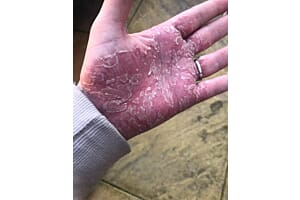Question: I’m planning to take a short break away, but I’m a little concerned about the flight and the risk of developing Deep Vein Thrombosis. What should I do?
16 September, 2008
Answer: Deep Vein Thrombosis (DVT) is certainly no stranger to the headlines, especially in connection with aeroplanes and cramped flying conditions.
In particular long-haul air travel (flights lasting longer than five hours) where you remain immobile in the seated position for long periods of time, are associated with an increased risk.
Blood clots can develop in the deep veins of the legs causing swelling, pain and redness especially at the back of the leg below the knee.
This is different from the mild ankle swelling that many people get during long haul flights and DVT usually affects only one leg.
But it’s not all bad news! Preventative measures can help you to reduce the risks.
Regular exercise will encourage healthy circulation and help to prevent blood from clotting.
When on board the plane, in-flight exercises can also help. Bend and straighten your legs, feet and toes while seated every half an hour.
Pressing the balls of your feet down hard against the floor will also help to increase the blood flow in your legs and reduce clotting.
You should also take occasional short walks when it is safe to do so.
Drink at least 8-10 glasses of water daily and avoid alcohol and caffeine during the flight. These are diuretics, which will dehydrate you, causing your blood to thicken making your circulation more sluggish.
As far as diet is concerned, eat plenty of raw, fresh fruits and vegetables and fish. In particular, vitamins B, C and E and Omega-3 fatty acids (found in fish) all contain anti-clotting agents and are crucial for maintaining healthy circulation.
Finally, a highly effective natural supplement to aid circulation and help prevent thrombosis is Pycnogenol, made from the bark of a French pine tree.
Pycnogenol has been found in research to have a dramatic effect on reducing thrombosis, without the side effects of aspirin.
If at all concerned about thrombosis, it is important to consult your GP.







